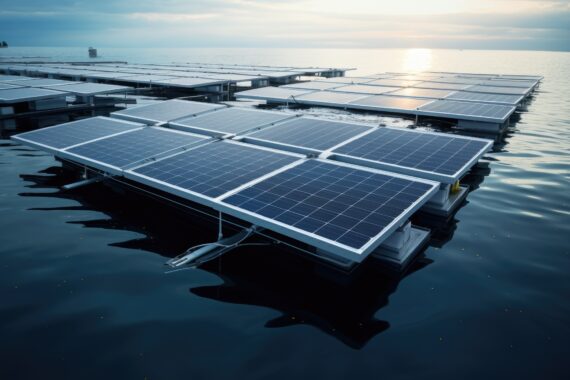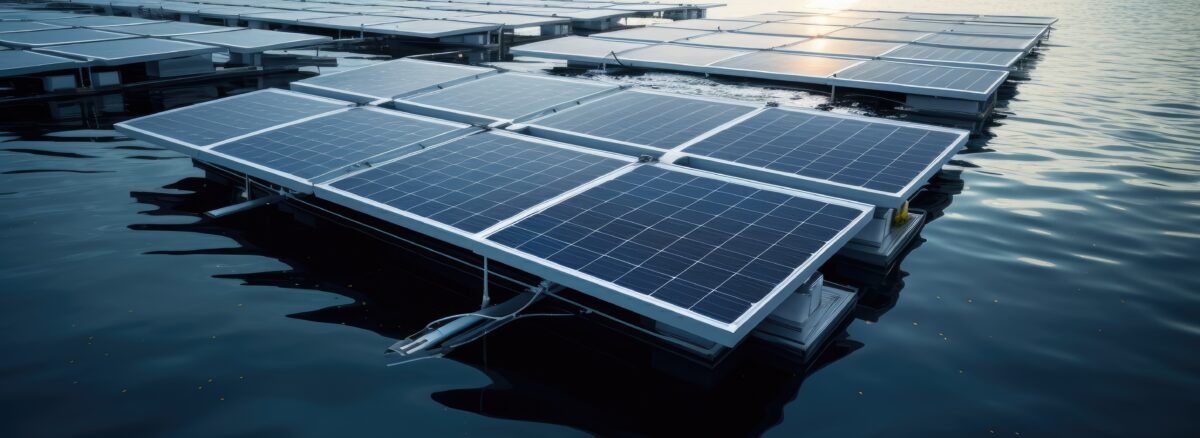- 19 June, 2024
- Francisco Gallego
- Comment: 0
- News

RENEWABLE ENGINEERING: INNOVATIONS IN SOLAR ENERGY CAPTURE FOR DESALINATION PLANTS

MEP-Projects has acquired fundamental knowledge in the execution of various water treatment projects in recent years. Thanks to our extensive experience in detailed engineering for both desalination plants and photovoltaic plants, we have implemented solutions that not only reduce operational costs but also minimize environmental impact by maximizing solar energy for drinking water production.
The global water crisis, exacerbated by climate change and population growth, has driven the search for sustainable solutions for drinking water production. Desalination plants, which convert seawater into water suitable for human consumption, play a crucial role in this mission. However, the high energy consumption of these plants poses a significant challenge. This is where innovations in solar energy capture offer a promising response, transforming renewable energy into a vital tool for water sustainability.
Solar panel technology has experienced notable advances in recent years, increasing efficiency and reducing costs. Photovoltaic (PV) solar panels, which directly convert sunlight into electricity, are fundamental in this context.
Technological advancements in solar cells have significantly increased the efficiency of converting solar energy into electricity. For example, Trina Solar has developed high-efficiency cells, achieving world records with its PERC and TOPCon technology, achieving efficiencies exceeding 23%. These improvements allow for greater energy production in limited spaces, which is essential for applications such as desalination plants that require a constant and reliable power source.
The intermittency of solar energy is one of the greatest challenges for its efficient integration into energy systems. To mitigate this problem, energy storage systems are essential. Advanced batteries and other storage technologies allow for the conservation of energy generated during the day for use during the night or on cloudy days.
Currently, phase change material thermophotovoltaic batteries are being developed for long-term energy storage (from 10 to 100 hours) and combined heat and power generation. These batteries aim to decarbonize heat and electricity generation in industrial plants, including desalination plants.
The goal is to develop a highly economical, globally efficient system that is safe, flexible, compact, silent, recyclable, scalable, and capable of producing clean heat and electricity on demand.
Another significant innovation in the field of solar energy is photovoltaic maintenance with drones. This approach is based on the deep analysis provided by electroluminescence images, the efficiency in data capture through drones, and the capabilities of artificial intelligence to identify and classify defects and pathologies in photovoltaic modules on a massive scale. With this advanced maintenance, the aim is to increase the efficiency of solar panels throughout their lifespan.
Integration of Renewable Energies in Desalination
The integration of these solar energy innovations into desalination plants offers multiple benefits. On one hand, it significantly reduces operating costs by decreasing dependence on fossil fuels and grid electricity. On the other hand, it contributes to mitigating climate change by reducing CO2 emissions associated with drinking water production.
Solar panel technology can be directly integrated with desalination systems through the generation of direct current (DC), which is compatible with most pumps and reverse osmosis systems used in these plants. By directly using the DC generated by the panels, the need for conversion to alternating current (AC) is eliminated, increasing the energy efficiency of the system. The use of solar energy also enables the implementation of desalination plants in remote locations where access to the electrical grid is limited or nonexistent. This is particularly relevant in coastal and arid regions where water scarcity is most critical.
Conclusion
Innovations in capturing and utilizing solar energy are revolutionizing the field of desalination, providing a sustainable and economically viable solution for drinking water production. As technology continues to advance, we are likely to see increased adoption of solar energy systems in desalination plants worldwide, marking a significant step towards global water sustainability. The synergy between solar energy and desalination not only addresses the water crisis but also drives the transition towards a cleaner and more sustainable energy future.
Made by Fabián García (Electrical Lead Engineer)

